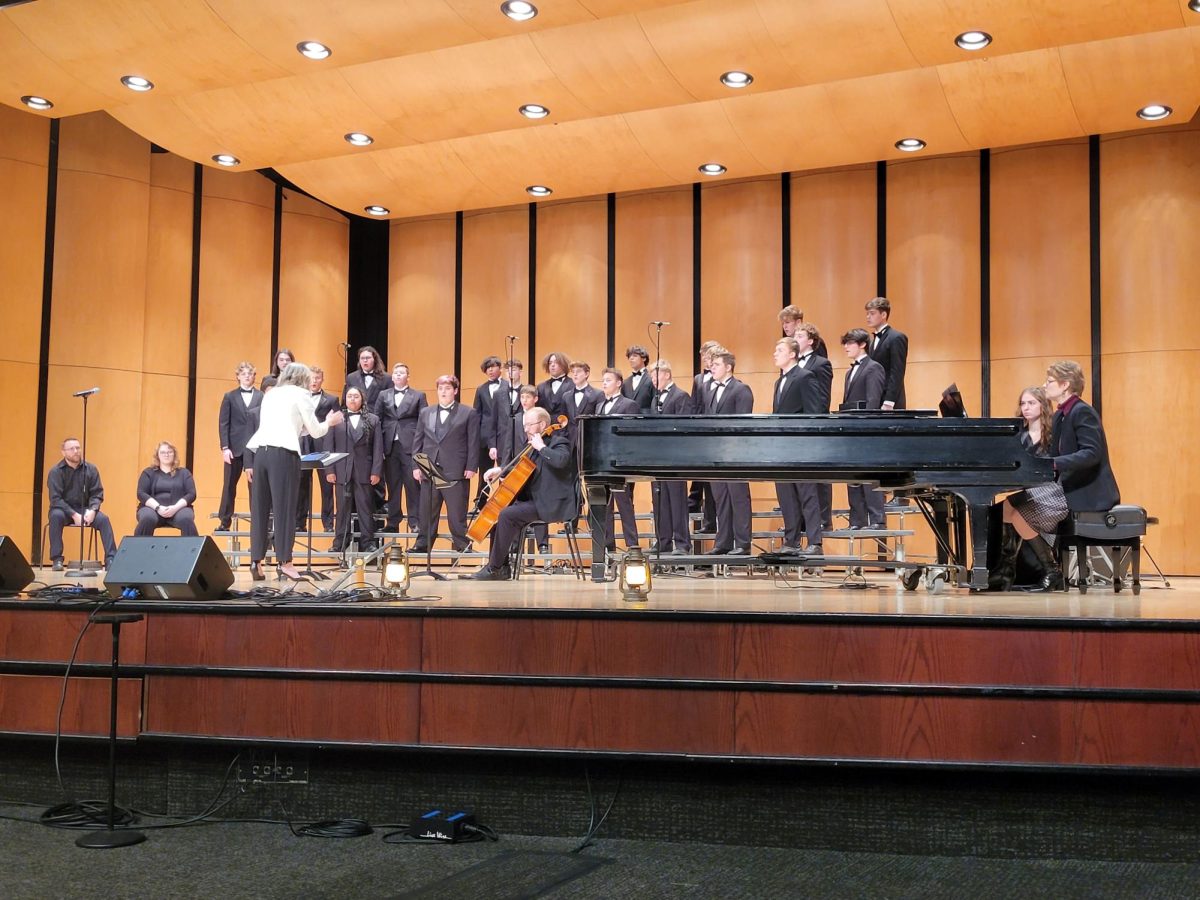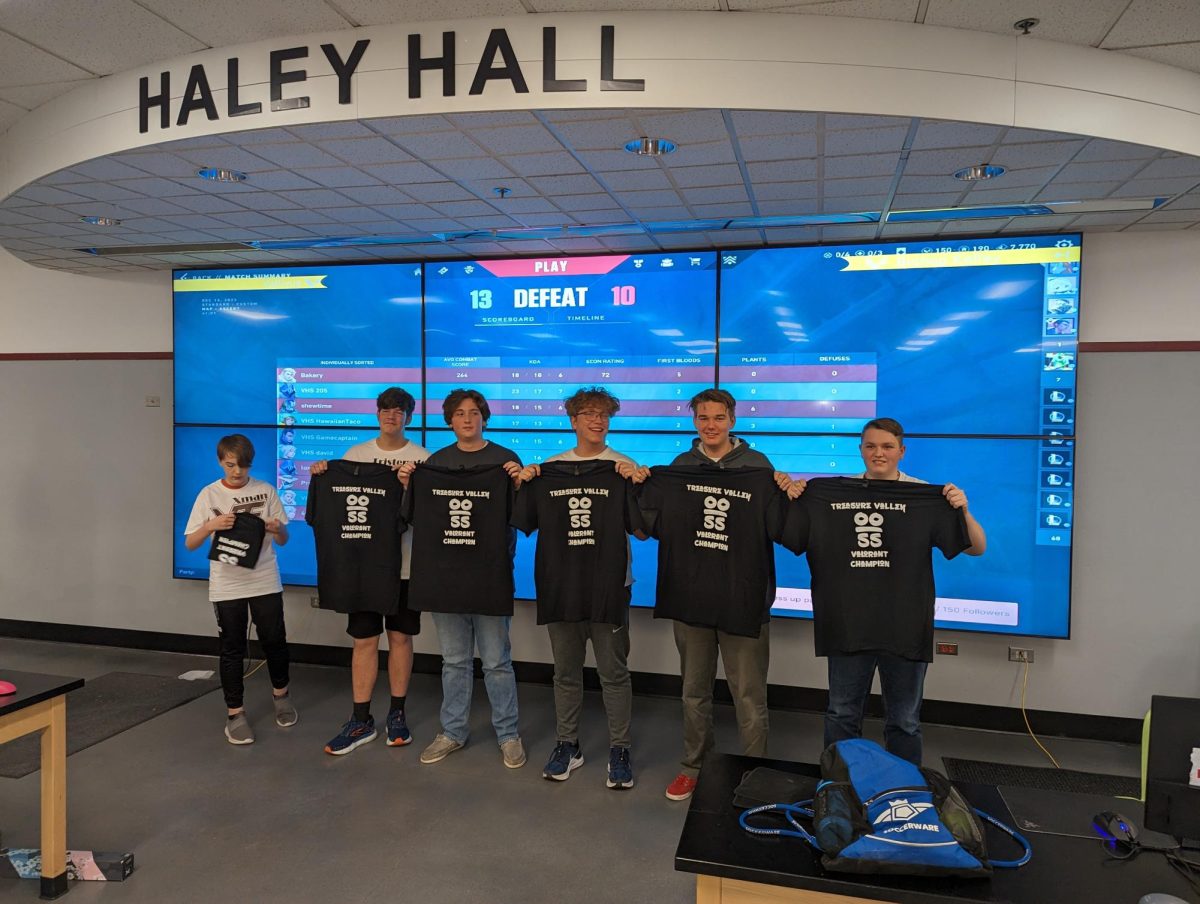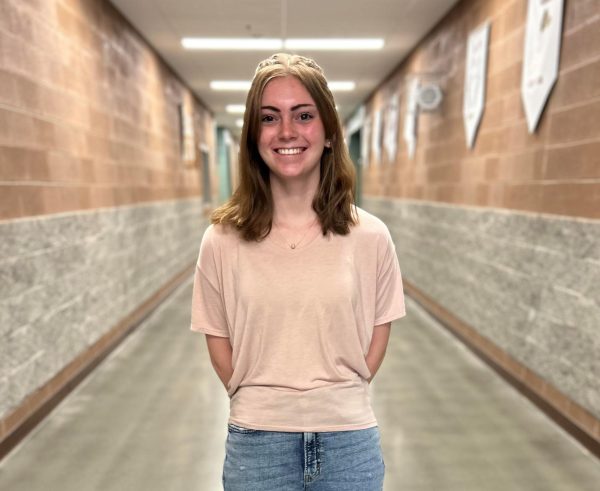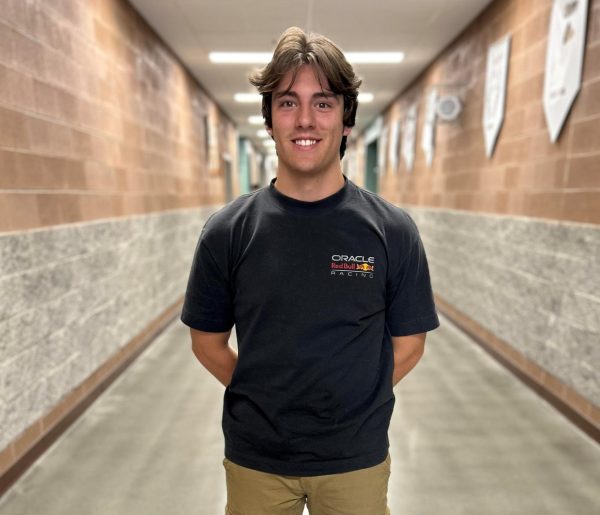A few weeks before the beginning of the 2024 to 2025 school year, Vallivue School District announced an updated phone policy in which no student phones or other cellular communication devices are to be allowed on campus during school hours. This policy (Policy 518 “Student Electronic Devices”) was officially amended on Aug. 13 for the upcoming school year. Teachers within the district have a similar policy. This policy change was quickly adopted by other districts in the area, showing support for phone-free schools, despite the backlash that came from students and their parents. These members of the community inquired about why this policy had to be imposed, how it would help the students, and if it would actually work.
Policy 518 was updated for a variety of reasons, all for the good of the students and staff. Before the current school year, Kellie Dean, the incoming principal at Vallivue High School, surveyed the staff to see what improvements the school could promote. The questions focused on disrespectful and problematic behaviors in the school. According to the Vallivue School District Assistant Superintendent, Joseph Palmer, 55% of the teachers responded that cell phones and electronics were extremely problematic, while 61.5% also defined cell phone use, earbuds, and music as the most common form of disrespect. Other schools in the district, including Ridgevue High School expressed these same concerns.
For these reasons, the district began looking deeper into the drawbacks of cell phones in schools. In an interview with Dean, she mentioned that studies throughout the nation have found a direct correlation between increased happiness and safety within the schools and those that had banned phones. These schools, Palmer added, include both Vallivue Academy and Vallivue Middle School. The strict phone policies at these schools have proven extremely successful over recent years. Palmer recounted how the principal of Vallivue Academy, Rafael CdeBaca, has not received resistance from any parents who have enrolled their children in his school and has only had one student refuse to attend because of the policy. Additionally, since the fall of 2019 when Todd Zucker became principal, Vallivue Middle has had a strict no phone policy. Before the policy, the middle school saw many behavior issues which were quickly remedied after the enforcement of this policy.
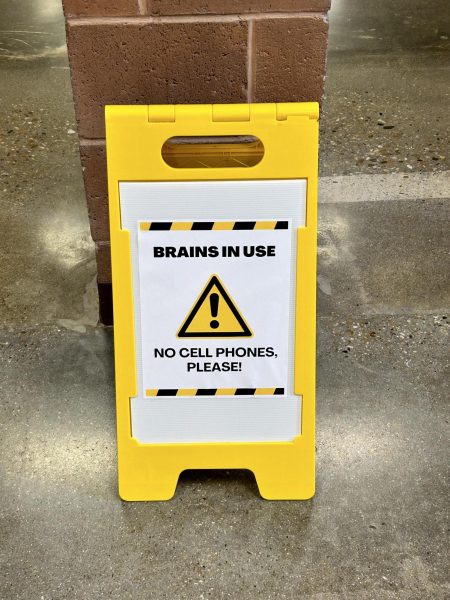
As Palmer emphasized, this is a very real example of how phones and other devices are “either the primary tool or somehow involved when major district policy violations take place during school hours.” These violations include “recordings in bathrooms or locker rooms, fights, harassment, destruction of district property,” and more, which are all problems that have been seen at VHS in recent years. These violations, according to Palmer, “take up an inordinate amount of time away from students’ learning” as well as from the administrators whose time is spent investigating these issues and confiscating devices. He explained that those who made the decision know that violations like these will not disappear, but it will become increasingly difficult for students to organize major policy violations while school is in session. Dean echoed this conviction by comparing the first eight days of the 2023-2024 school year to the first eight days of the current school year. This year, she stated that as of the 8th day of school, there were zero acts of physical aggression, a 100% decrease from the year before. Bullying and harassment also saw a 100% decrease while disrespect decreased by 50%.
Dean also reported that with less access to phones, students tend to have less negative emotions and therefore better mental health. This is because social media is made to target emotions, particularly negative ones, so to “take [the phones] out of their hands” is to make each student a “calmer individual.” She said that this, on top of both what the teachers have shared about the difference in their students, and the fact that students seem to be getting used to the policy, either tolerating it or even enjoying it, shows that this updated policy is quickly becoming a success in the high school. To further determine whether this policy is being accepted, several interviews were conducted with VHS students.
Similar to the initial reaction from the community, senior Brennan Case stated that he felt the policy, after being rewritten, was “overkill,” and “outrageous.” He would prefer students to be allowed phone usage during passing periods and lunch so they can listen to music. On a note more in agreement with the district and their decision to rewrite policy 518, Case discussed that he felt that the district should allow phones during passing periods and lunch, though they should remain completely disconnected in the classroom. Case stated that, “if a teacher sees [a student’s phone] in the classroom… they should… take it straight to the office and have their parents come get it.”
Kaylan Donahue, a freshman at Vallivue High School and flier on the cheer team had a different perspective having come from Vallivue Middle School the year before. Donahue discussed how the no phone policy was not a huge change for her as the middle school had already implemented a similar policy. When asked about her reaction to hearing the high school was enforcing the rewritten version of policy 518, Donahue stated, “It was definitely disappointing, but not too much of a shock.” She feels that the policy is a good thing to have as it has “helped us all socially,” and allows us to be “able to bond with other students and friends.” Donahue observed that the new phone policy was quite effective in this way to both her and her peers.
Similar to Donahue’s opinion, Jackson McDonald, ASB President at Vallivue High School stated that initially his opinion about the policy was the same as most of the other students. In the beginning, he was very unenthusiastic about it, saying he was “only seeing the cons.” He was unsure about how the students would contact parents and guardians for health and safety concerns. Palmer, in his interview, explained that this will not be an issue, as parents can easily reach their students by contacting the front office of their child’s school. He added that since a no phone policy was implemented at Vallivue Academy, “parents have never had a complaint about accessing their students during the school day for communication,” and that this should be the case for all other schools in the district as well. McDonald continued to discuss the policy’s effects as the year progresses, highlighting the positives of the updated policy that he can now see spreading throughout the school. He noticed that students have been talking to each other again rather than looking at their phones, both in and out of class. He feels that the policy “has been pretty effective, and teachers are making it stay.”
Jenna Hardman, a sophomore and active member of the Vallivue girls’ lacrosse team reflected this thought, saying that for the most part, the student body seems to recognize the benefits of the new phone policy and has been following it well. Hardman also explained her conflicting opinions on the subject over the past three weeks. She stated that she used to think that the phone policy was unnecessary and that it would complicate things. She was nervous for the year because she thought that it would be more difficult to find her friends during passing periods and lunch without her phone, but now that multiple weeks have passed, she has changed her mind. When asked why, Hardman simply said that, “Life has more meaning without my phone.” She continued by emphasizing how everyone talks more and is more friendly towards each other since this policy was implemented, which boosts the morale of the entire school.
The results described by Hardman correlate with what the school district had intended as well as what the teaching staff at Vallivue High School have noticed. When discussing the phone policy with teachers, a new understanding of the changes in classroom environments was provided. Annette Malone, a teacher in the math department, stated her feelings and views on the updated policy. Malone stated that she loves the updated policy. She brought up how strongly the school has stuck to their new plan, stating, “It hasn’t really changed. It’s what we said it would be.” Malone mentioned that she has only had to confiscate two items, including one phone, and one bluetooth earbud. She emphasized that she can “walk around and answer math questions, and teach people instead of policing.” She also has seen a correlation between the new phone policy and higher completion rates for student work. Additionally, more of this work has been turned in on time. Malone has also seen that her students are understanding things better this year. She feels that this is due to the removal of the distractions that the phones provide while in the classroom. Malone feels that the policy is working in the district’s intended manner in classrooms, though she did admit that she has not observed the cafeteria, hallways, and other places to see how it is working there.
Becky Stephens, a teacher in the history department, filled in this missing piece. In response to a question about the changing school environment, Stephens responded by saying, “I’ll tell you how much it has changed the hallway environment first, because that’s my favorite part. I love standing in the hallways now because I see people’s faces.” Stephens discussed that she sees kids laughing and interacting with one another. She mentioned that the hallways are noisy “in a good way.” Stephens also shared that before the updated policy was implemented, kids would run into each other while walking in the halls because they were looking at their screens, whereas now that is not happening. Within the classroom environment, Stephens states that she feels students are more engaged and ready to learn and have class discussions. Stephens mentioned how eye contact has increased, which is something Malone brought up as well. Stephens described how this eye contact between students has made her happier. She stated, “I like to watch people talking and laughing… if you see two people laughing it makes you smile… it just brightens the day.”
Despite the initial negativity towards the districtwide decision to update policy 518, the statistics provided by Dean and the reasons highlighted by Palmer demonstrate the fact that the decision was for the better. The benefits seen by students and teachers alike have also proven this to be a positive change, which will, as Stephens expressed, brighten the day for people all around the school.
The updated phone policy can be found here.










